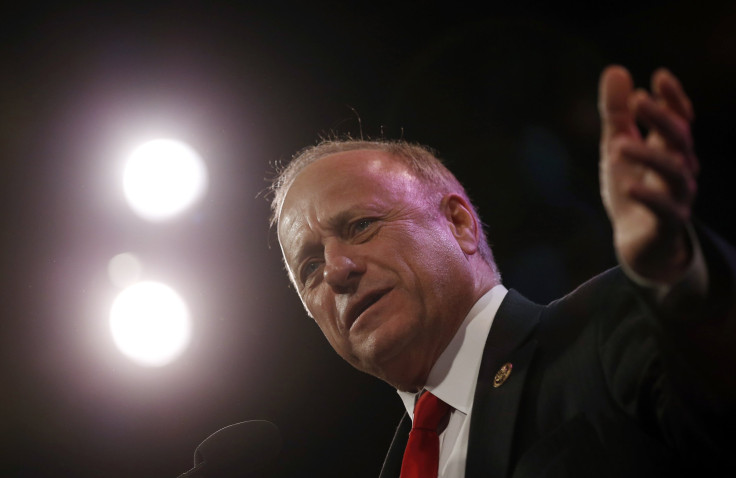Rep. Steve King Marriage Legislation: Iowa Congressman Introduces Bill To Strip Federal Courts Of Right To Hear Cases For Marrying

Republican U.S. Rep. Steve King introduced legislation Wednesday that would strip federal courts of the jurisdiction to hear cases related to marriage of any kind. The Iowa congressman said his bill, called the Restrain the Judges on Marriage Act of 2015, would prevent courts from "destroying traditional marriage." The bill marks the latest effort by the representative to limit ways to allow gay marriage.
"Federal courts have perverted the Constitution to make law and create constitutional rights to things such as privacy, birth control, and abortion," King said in a statement, all of which he said were not envisioned when the country was founded.
King, a member of Congress since 2003, is also a part of the highly conservative Tea Party movement. He has branded himself as a staunch conservative and has not shied away from controversial efforts and inflammatory remarks on the topic of gays and gay marriage.
In 2012, King introduced an amendment to ban same-sex marriages in military facilities or by military chaplains. In 2014, he told the Jefferson Herald, “What was a sin 2,000 years ago is a sin today,” adding that he did not expect gays to go to heaven. King has also suggested that same-sex marriage is “a purely socialist concept” that is aimed at undermining “individual rights and liberties.” In 2009, after Iowa legalized gay marriage, King warned that “Iowa would become the Mecca for same sex marriage.”
“I support traditional family values,” King’s website currently says. “The union between a man and a woman is the building block of the family and the cornerstone of our society,” it adds, suggesting the United States should pass a constitutional amendment to that effect.
King has shown signs of softening on the issue, as evidenced in a 2014 BuzzFeed interview: “I think we need to concede that there’s been a real shift of public opinion on marriage,” he said. Nevertheless, he has also suggested that it would be more effective to focus efforts to preserve “traditional marriage” on the rights of states to define marriage on their own terms rather than by approaching the issue from a federal standpoint, citing the fact that “there’s been such an attack on people who believe in traditional marriage.”
© Copyright IBTimes 2025. All rights reserved.






















